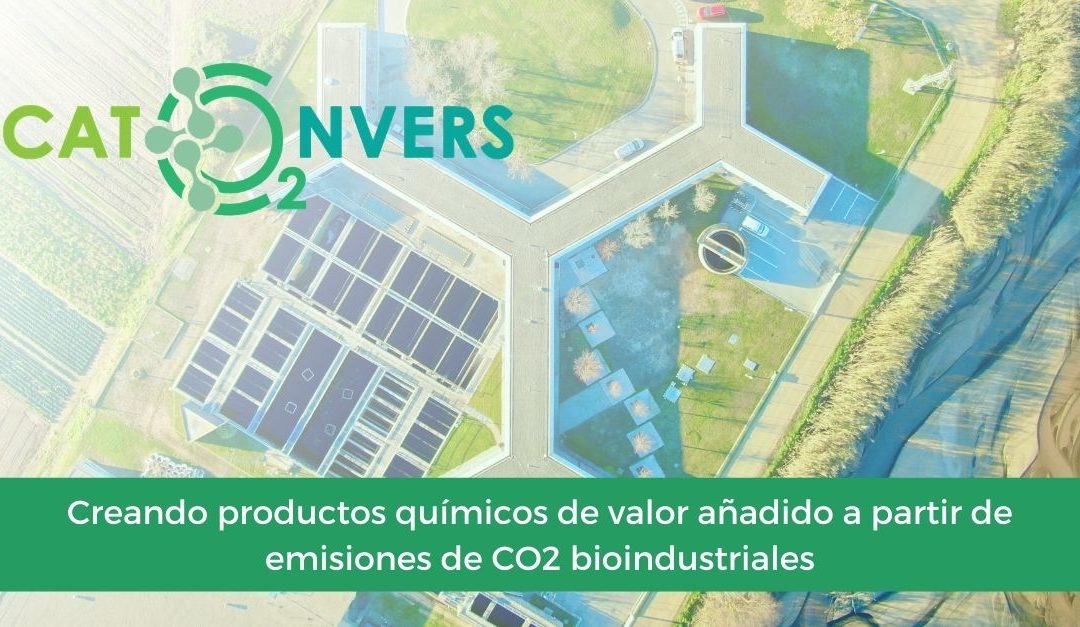CATCO2NVERS kicks off, a new project funded within the framework of the European Union´s Horizon 2020 research and innovation programme that seeks to create value-added chemical products from bio industrial CO2 emissions that integrate catalytic technologies.
The main purpose of CATCO2NVERS is to reduce greenhouse gas (GHG) emissions from bio-based industries by developing five innovative and integrated technologies based on three catalytic processes (electrochemical, enzymatic and thermochemical). The objective of the project is to transform the residual CO2 from industries into value-added chemical products: glyoxylic acid, lactic acid, methyl furan dicarboxylic ester, methyl esters of cyclic carbonated fatty acids and bio methanol, with application in the chemical and cosmetic industry and industries plastic.
FUNDITEC, Artificial Nature, CARTIF, CSIC, PERSEO Biotechnology and Sustainable Innovations are the six Spanish partners that are part of a consortium in which a total of fifteen partners from eight different European countries participate. All of them will work together for 48 months, helping to convert the captured CO2 into value-added chemical products where they are produced and use them in a cycle close to production, instead of releasing CO2 into the atmosphere.
CATCO2NVERS will process certain bio-based products replacing fossil material with zero or negative greenhouse gas emissions, which will help establish solid business models that involve all actors in the value chain and thus reduce environmental impacts and costs of production.
FUNDITEC is the technological centre in charge of coordinating the project, in addition to supervising the validation of technologies based on thermocatalytic processes and working on the development of an innovative technology to convert CO2 into cyclic carbonates using fatty acid methyl esters as starting material. PERSEO Biotechnology will characterize and provide the partners with CO2 for its recovery, coming from the alcoholic fermentation stage of its industrial process for the production of bioethanol from the organic fraction of urban solid waste.
CARTIF and CSIC will be in charge of the thermocatalytic conversion of CO2 into methanol and furan dicarboxylic acid dimethyl ester, respectively, as well as the validation of value-added chemicals and technologie. For its part, Artificial Nature will assume the assessment of the life cycle and the tasks related to the cost of this cycle. Finaly, Sustainable Innovations leads the exploitation and market research strategies, the development of e-learning materials and training programs, as well as the development and implementation of a communication and dissemination plan.
In summary, CATCO2NVERS will focus on reducing industrial CO2 emissions, while exploring new ways to produce value-added products. To this end, a holistic approach will be used for the design and development of innovative catalytic technologies for the valorisation of CO2 in the manufacture of different bio-based products, including monomers for the production of bioplastics, using CO2 streams from biorefineries.
